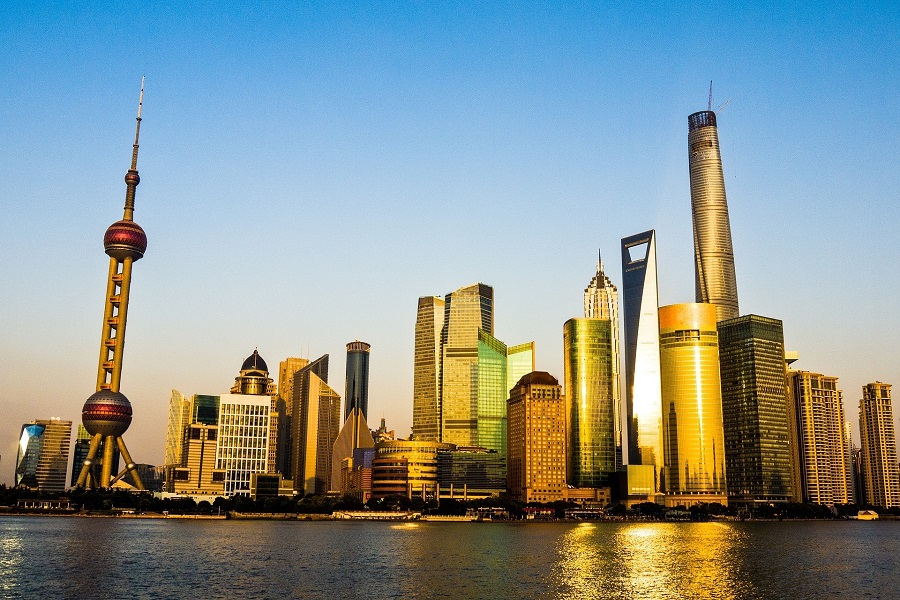"Throughout China's business landscape and across its talent ecosystems, technology is not considered a threat but an opportunity."
China is poised to define the future of talent ecosystems and sharing economies across the world. This nation of nearly 1.4 billion people continues to ride the surge of a booming and influential middle class that demands increasingly elevated employment standards and quality of life.
As a result, China's businesses and economic policies must adapt to meet these unprecedented expectations — which will also impact how global international talent ecosystems operate.
Disruption Wrapped in Technology
For a country steeped in centuries-old traditions and revered customs, China has proven very receptive to the sweeping disruptions that new technologies have introduced. Juggernaut companies, such as Alibaba and Tencent, have changed how people shop, bank, consume information and entertainment, and even celebrate holidays. For example, the old tradition of offering others cash in a red envelope during the New Year celebration is often done through apps today. This enthusiastic embrace of digital technologies and mobile devices not only represents the desire of Chinese citizens to live tech-savvy lives, it also represents their desire to integrate the power and connectivity of technology into their careers and existing talent ecosystem.
Throughout China's business landscape, technology is not considered a threat but an opportunity. In a relatively short period of time, China's economy leapfrogged from being a predominantly agrarian and manufacturing economy to becoming a modern tech-driven, agile economy.
Technology has not only lifted millions of Chinese workers out of poverty, but it's also helped them rocket to the forefront of digital transformation, revolutionizing workforce dynamics. Talent ecosystems are no longer limited to the people in the cubicle next to you, on the same floor as you, in the same building, or even in the same city or country. Modern talent ecosystems prioritize the melding of skill sets, talents and synergies with teams comprised of workers who can be anywhere. Instead of fighting these changes, China is embracing this new world of disruption.
How Urban Complexity Fueled China's Sharing Economy
As China's economy evolved, more and more people migrated to its sprawling urban areas and megacities. Metropolitan areas naturally force people to commingle, and that level of interaction inherently results in the faster exchange of ideas, values and expectations. Unsurprisingly, this sharing economy took off in China as people sought out innovative ways to create value and earn income — doing everything from driving people around and reinventing food delivery systems to creating proprietary cryptocurrencies, fintech applications and startup companies. China's mass population shift continues to bolster the country's need to develop new workforce dynamics and tech talent ecosystems.
Though the level of investment in China's sharing economy industries fell in 2018, there is no reason to think that digital transformation and the economic future of China's growth potential is receding.1 Growth opportunities in tech-driven sectors are only limited to human imagination, intelligence and the ability to execute a vision. Disruption, by nature, comes from unexpected places — often at the least expected times. The key to a vibrant sharing economy is in the hearts, minds and behaviors of those who seek innovation, and they require a culture that encourages people to develop their ideas and potential. With its global investments in Belt and Road initiatives, as well as the Greater Bay Area endeavor with Hong Kong and other regional powers, China is seeking a new level of international collaboration and growth opportunities.
A New, Connected Generation of Talent
A new generation of entrepreneurs and creative digital thought leaders is leading China into the future. Millennials across the planet are demanding fluid work pipelines and organizations that embrace the principles of open source talent: collaboration, sharing and community-building. The same forces of proximity that made urban areas such rich places of exchange also exist in the digitally connected world, where online experiences aid in the cross-pollination of digital invention and insight from people of different cultures and backgrounds.
With these innovations and changes will come new ways to work — not just as an employee but as part of an international talent ecosystem where a 25-year-old programmer in Shanghai will work with a 67-year-old professor in Paris and a 39-year-old mother of two in Chicago to develop the next disruptive experience, company or idea that will change the world.
China has experienced some of the most profound disruptions in human commerce and behavior. Today, the nation is investing heavily not only in the potential of China and its citizens, but in its workforces and talent ecosystems everywhere. Digital disruption, after all, begins with connecting to the creative potential of the human spirit.
Sources:
1. Tong, Quian; Ge, Yang. "Investors Grow Wary of Sharing Economy Plays." Caixin, 01 Mar. 2019.https://www.caixinglobal.com/2019-03-01/investors-grow-wary-of-sharing-economy-plays-101385578.html.









